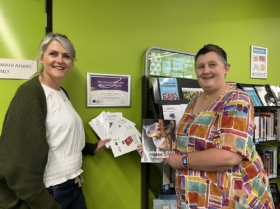Ways you can help a family member or friend
If you or someone else has noticed signs that your memory, thinking, behaviour and mood are changing, it can be scary. It’s the same if you notice signs in someone close to you. What if it’s bad news? You might feel it’s better not to find out.
That’s a normal feeling. But it is definitely better to find out as early as you can, because:
- if it’s not anything serious, you can put your mind at rest
- if it’s some other condition than dementia, you may be able to start getting treatment
- if it’s a dementia diagnosis, the sooner you know, the more you can do.
If you’ve noticed warning signs in a family member of friend:
- Gently broach the subject and express your concerns.
- Give the person time to get used to the idea of having a review by a GP.
- Book a double appointment with the GP. Let the GP know the reason for the visit prior to the appointment.
- Attend the appointment together.
- The GP may refer you onto a specialist – Geriatrician, Psychiatrist of Old Age, Mental Health for Older Peoples Team, a Memory Clinic or a Neurologist for a more in-depth assessment.
- Go with them to see the specialist, support them through the assessment, cognitive testing, CT scans etc.
- Allow the person time to adjust to the diagnosis.
- Begin to plan for the future – most importantly discuss and sort Enduring Power of Attorney (EPOA).
- Closely monitor their safety (for example with driving) and if you’re concerned, seek professional advice about what to do about it.
- Assist the person living with a diagnosis of dementia to live well, helping them to maintain dignity, respect, independence and engagement for as long as possible.


